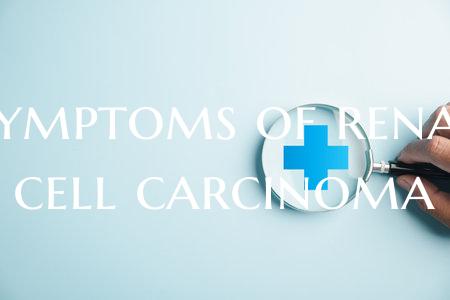
Symptoms of renal cell carcinoma
Renal cell carcinoma, commonly known as kidney cancer, is a type of cancer that develops in the lining of small tubes in the kidney. Recognizing the symptoms of renal cell carcinoma is crucial for early detection and timely treatment. Here are some common symptoms associated with this type of cancer:
1. Blood in Urine (Hematuria): One of the primary indicators of renal cell carcinoma is the presence of blood in the urine. This may make the urine appear pink, red, or cola-colored.
2. Persistent Pain in the Side or Lower Back: Individuals with renal cell carcinoma often experience persistent pain in the side or lower back that does not resolve with typical remedies like rest or massage.
3. A Lump or Mass in the Abdomen: A palpable lump or mass in the abdomen can sometimes be a symptom of a more advanced stage of renal cell carcinoma.
4. Fatigue and Weakness: Ongoing fatigue or unexplained weakness can be a sign of various health issues, including kidney cancer. If these symptoms are persistent, it is essential to seek medical advice.
5. Unexpected Weight Loss: Unintentional weight loss without changes in diet or exercise could be a symptom of renal cell carcinoma or other underlying health conditions.
6. Loss of Appetite: A decreased appetite accompanied by other symptoms like weight loss and fatigue should raise concerns and prompt a visit to a healthcare provider for evaluation.
7. Fever: Some individuals with renal cell carcinoma may experience unexplained fevers that come and go. If you have a fever without any other apparent cause, it's essential to get it checked out.
8. High Blood Pressure: In some cases, renal cell carcinoma can cause high blood pressure. If diagnosed with high blood pressure suddenly or at a young age, further investigation may be necessary.
It is crucial to remember that these symptoms can also be caused by conditions other than renal cell carcinoma. However, if you experience any of these persistent symptoms or have concerns about your health, it is recommended to consult a healthcare professional for a thorough evaluation and appropriate management. Early detection and treatment of renal cell carcinoma can significantly improve outcomes and quality of life.